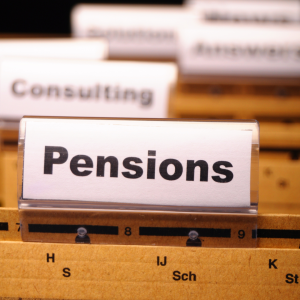September 23, 2024
Pension funds are a critical part of retirement planning, and to ensure your pension supports your life after retirement, pension fund management is essential.
However, because pension funds are so complex with so many regulations, a comprehensive and detailed understanding is essential. In this article we will look into the key regulatory frameworks, the role of governing bodies, and the responsibilities necessary for effectively managed pension fund operations.

A pension fund is a pool of assets that are saved to provide retirement income. These funds are typically part of a workplace pension scheme or a personal pension plan. Ensuring the effective management and protection of these assets is critical, as they affect the long-term financial security of millions of people.
To maintain trust and security, pension funds are regulated by various bodies that ensure they adhere to strict governance arrangements. These regulations are designed to safeguard contributions, ensure prudent investment strategies, mitigate risks, and secure retirement income for pension members.
In the UK, pension fund management is subject to strict regulations. Several regulatory bodies play a role in ensuring pension schemes operate transparently and efficiently:
Together, these bodies help maintain a strong regulatory framework that protects members and encourages good governance in pension fund management.
Managed pension funds are subject to various compliance requirements. Understanding these regulations is critical for fund managers, trustees and members. Below are key compliance essentials:
One of the primary regulatory concerns is the investment strategy of a pension fund. Whether dealing with a defined benefit pension or a defined contribution scheme, fund managers must create an investment portfolio that balances growth potential with acceptable risk. Effective risk management is essential to protect members’ retirement savings, particularly in volatile markets.
Pension schemes must maintain a pension board responsible for the governance of the fund. These boards ensure that the scheme complies with all regulatory standards, including investment, funding, and communication practices. A key part of good governance is the requirement for trustees to have adequate knowledge and understanding of pension law, investment principles, and best practices.
Pension fund trustees must ensure the efficient management of the fund and provide regular updates to members. The reporting process includes detailed accounts of the fund’s performance, compliance with legal requirements, and the risks associated with the fund’s investments. The Pensions Act mandates these transparency obligations.
Regulatory authorities focus heavily on risk management as part of their governance framework. The main risks include underfunding, poor investment performance, and longevity risk (i.e., members living longer than anticipated).
Fund managers are expected to implement risk mitigation strategies. This includes diversifying investments, regularly reviewing the scheme’s financial health, and aligning the investment strategy with the fund’s risk tolerance. The pension board must also ensure that all risks are adequately monitored and addressed in compliance with regulatory standards.
A pension scheme’s success relies heavily on effective governance arrangements. The pension board is the governing body that oversees how the fund is managed. Trustees play a vital role in ensuring that the scheme complies with all legal requirements, manages risks effectively, and keeps members informed. Trustees are required to have the necessary knowledge and understanding to make informed decisions about the fund’s management.
Governance arrangements also include processes for member communications, ensuring members receive timely and accurate information about the fund’s performance and any risks affecting their retirement income.
With the continued evolution of the financial landscape, pension fund management will likely face more stringent regulations in the future. Recent developments, such as changes to the state pension age and the growing importance of sustainable investments, may impact how pension schemes are managed.
One area of growing focus is the integration of Environmental, Social, and Governance (ESG) factors into the investment strategy of pension funds. This trend aligns with broader societal expectations for responsible investing, and regulatory bodies are increasingly scrutinising how pension funds manage these considerations.
A big difference in pension fund management is defined benefit and defined contribution schemes.

The question “When do I get my pension?” is one of the most frequently asked by scheme members. In the UK, most individuals can begin receiving their state pension once they reach the state pension age, which currently stands at 66, though it may rise in the future. Private or workplace pensions may allow earlier access, depending on the scheme’s rules. However, accessing funds before reaching the official state pension age may have tax implications or affect the amount you receive.
For those wondering, “How do I claim my state pension?” you will need to apply through the government’s official portal or contact the Department for Work and Pensions (DWP). In most cases, you are automatically contacted about four months before you reach state pension age to start the process.
Understanding the complexities of pension fund regulations is essential for both fund managers and members. Effective pension fund management relies on strict adherence to governance, compliance with regulatory frameworks, and proactive risk management. Understanding your pension type, who regulates it, and when you start receiving benefits is essential to ensuring a financially secure future.
"*" indicates required fields